BIG BRAND MARKETING WITH NICK SKOTIDAS | E011 PODCAST
LISTEN TO THIS EPISODE ON ALL STREAMING SERVICES
ABOUT THE GUEST
Nick Skotidas sits down with George Stroumboulis in Newport Beach, California on the Invigorate Your Business Podcast.
Nick Skotidas is an award-winning marketer with progressive experience building and scaling brands globally in the CPG, technology and retail industry. During his time at Canadian Tire and Tim Hortons, his efforts helped contribute to both brands being named overall brand of the year by Strategy Magazine. While managing iconic brands such as Budweiser, Bud Light and Michelob Ultra, while at Anhesuer-Busch InBev, Nick led Bud Light to achieve its strongest performance in 22 years and catapulted Michelob Ultra to the fastest growing beer brand in Canada.
He has developed and managed integrated campaigns and partnerships with some of the world’s largest sports and entertainment properties; such as Live Nation, the Canadian Olympic Committee, the NFL, NHL and UFC. Nick was integral in building a high-performing team at Canopy Growth Corporation, the world’s largest cannabis company, to manage Canada’s #1 cannabis brand, Tweed. As the Vice President of Marketing at FitTrack, Nick led a global team of marketing, creative and media professionals in driving 4x revenue growth year-over-year and gained attention for the brand’s repositioning in Ad Week. His key to success has been his passion for unlocking deep consumer insights in order to inspire breakthrough creative that taps into, and shapes culture.
“I think I really realized that when I was on Bud Light I had been in the space within Canadian Tire doing sponsorships and events. And when I was doing that, I found that I loved events and I love the experiential aspect of it, but it felt too easy for me. I was like, I want to be challenged in a way. ”
MEDIA RELATED TO THE EPISODE
Nick Skotidas sits down with George Stroumboulis in Newport Beach, California at the Ideoli Group offices on the Invigorate Your Business Podcast to talk about all things branding, marketing and working for major global brands.
Nick Skotidas sits down with George Stroumboulis in Newport Beach, California at the Ideoli Group offices on the Invigorate Your Business Podcast to talk about all things branding, marketing and working for major global brands.
Nick Skotidas is a professional marketer working for global brands like Amazon, Budweiser and several others.
George Stroumboulis sits down to interview guests from all walks of life.
ABOUT THE “INVIGORATE YOUR BUSINESS” PODCAST
The Invigorate Your Business with George Stroumboulis podcast features casual conversations and personal interviews with business leaders in their respective fields of expertise. Crossing several industry types and personal backgrounds, George sits down with inspiring people to discuss their business, how they got into that business, their path to the top of their game and the trials and tribulations experienced along the way. We want you to get inspired, motivated, and then apply any advice to your personal and professional lives. If there is at least one piece of advice that resonates with you after listening, then this podcast is a success. New episodes weekly. Stream our show on Spotify, YouTube, Apple, Amazon and all other platforms.
ABOUT GEORGE STROUMBOULIS
George Stroumboulis is an entrepreneur to the core, having launched several ventures across multiple industries and international markets. He has held senior-level positions at progressive companies and government institutions, both domestically and internationally, building an extensive portfolio of business know-how over the years and driving profit-generating results. George’s ability to drive real change has landed him in several media outlets, including the front page of the Wall Street Journal. George was born in Toronto, Canada to his Greek immigrant parents. Family first. Flying over 300,000 miles a year around the world puts into perspective how important family is to George’s mental and emotional development. With all this travel to global destinations, the longest he stays even in the most far-out destination is 3 days or less - a personal rule he lives by to make sure he is present and involved in family life with his wife and three daughters. To read about George’s global travels, stay connected with his blog section.
STAY CONNECTED WITH GEORGE STROUMBOULIS
STREAM & LISTEN TO THE PODCAST:
SPOTIFY: https://open.spotify.com/show/1rW2CmxQoiJNEPOZupJlvd
YOUTUBE: https://www.youtube.com/user/Stroumboulis
APPLE iTUNES: https://podcasts.apple.com/us/podcast/invigorate-your-business-with-george-stroumboulis/id1607693240
AMAZON MUSIC: https://music.amazon.com/podcasts/8fc03929-71b3-483a-a64e-153e30b3d462/invigorate-your-business-with-george-stroumboulis
iHEARTRADIO: https://www.iheart.com/podcast/269-invigorate-your-business-w-92187370/
STROUMBOULIS SITE: https://www.stroumboulis.com/podcast
PODCAST SITE: http://www.invigorateyourbusiness.com
OTHER SERVICES: GOOGLE, PANDORA, OVERCAST, CASTRO, CASTBOX, PODFRIEND, PLAYER.FM, PODCASTADDICT, PODCHASER, PODCASTINDEX and RSS FEED.
FOLLOW GEORGE STROUMBOULIS:
INSTAGRAM: https://www.instagram.com/georgestroumboulis/
YOUTUBE: https://www.youtube.com/user/Stroumboulis
LINKEDIN: https://www.linkedin.com/in/Stroumboulis/
TWITTER: https://twitter.com/Stroumboulis
FACEBOOK: https://www.facebook.com/georgestroumboulis
TIKTOK: https://www.tiktok.com/@georgestroumboulis
CONTACT GEORGE DIRECTLY: https://www.stroumboulis.com/connect
FULL SHOW TRANSCRIPT
George Stroumboulis: Should teenagers go to school?
Nick Skotidas: I had some of the best years of my life. That experience is not just about the education part of it, but it's about growing as an individual and being put in different situations and applying for that co-op internship and trying to get into the program. Like all of those things make you better, make you stronger, and teach you what real world is going to be like.
George Stroumboulis: My name is George Stroumboulis and I'm extremely passionate about traveling the world, meeting new people, and learning about new businesses. Join me as I sit down with other entrepreneurs to learn about their journeys. This episode of Invigorate Your Business starts now.
George Stroumboulis: Listen, cheers, man. Welcome.
Nick Skotidas: Thank you.
George Stroumboulis: You're a hard guy to get ahold of.
Nick Skotidas: That is true.
George Stroumboulis: We’ve been trying to do this for several months, and you've been gallivanting around the world. We're going to get into your bio, what you do, but now I'm so impressed with just your background. You're from a very small town in Canada. We're like 10 minutes apart. And if we talk about where you were, where you came from, and then where you came up, who you've worked for, who you're working for, it's an amazing story. So, congratulations on that.
Nick Skotidas: I appreciate it. Thank you.
George Stroumboulis: Yep. So, Nick, tell us a bit about yourself. Like what do you do?
Nick Skotidas: Yeah, so I'm a brand marketer. I've been doing brand marketing for the last 13 years, on some iconic brands from Canadian Tire to Tim Horton's, Budweiser, Bud Light. I worked in the cannabis space, which was really cool, and then took on Amazon, the behemoth of an e-commerce company. So, I love what I do. I love building brands. I love scaling them and launching them in a global way and reaching customers in a way that makes sense to them.
George Stroumboulis: Yeah. That's amazing. So, let's take it back a bit. You're from Chippewa. Right? So, I'm from Fort Erie. Fort Erie, Chippewa, very small, just over the border of Buffalo, New York. You know, seven years difference. I would see you in the community, you were just younger, right? How do you come from there and build your way up and know, hey, I want to work for big brands, change people's mindsets to influence them to buy product. Like how do you come up and know that's the path?
Nick Skotidas: Yeah. Well, I didn't really know that was the path when I was younger. I think it's evolved throughout the last number of years. But I think always since I was a child and younger, I had ambitions. I always wanted to be someone or do something great. And I always heard that from my parents. My dad would always tell me like, you need to do something great, you have so much potential. So, I think that was ingrained in me from an early childhood. And then when I started thinking about schools and where do I want to go, I originally thought I wanted to do politics and I wanted to be the prime minister. Cause anytime that I aim for something, I always want to be at the highest level, the best. And so Prime Minister was always a key target of mine. But then as I learned more about business and the financial world, I was like, oh, I want to be a stockbroker, I want to be in investments. And when I went to business school, that's what I had my ambitions on and my sights on and slowly learned that marketing was something that I'm more aligned with. I love the creative side of it. I love the idea that you can tap into a human insight and unlock some creative work that gets people talking. That's part of the zeitgeist, that's part of pop culture. And I think that's what's been the thing that's fueled me so much is pop culture cause in my life, my personal life, I love looking into that, entertainment and sports and that type of thing. So I always wanted to mesh that with the work that I do and it's taken me to that place.
George Stroumboulis: Yeah. That's incredible. You touched upon your father made you believe that you are the best, you're gonna be the best. Like that's huge because that could go one of two ways and a lot of times it goes the opposite, where you just don't achieve anything and you think you're the best because they've told you that. But this actually fueled you.
Nick Skotidas: Yeah. I've always had that ingrained in me and I always knew that I could do anything that I put my mind to it and they always had my back. Both my mom and dad always had my back along the way and encouraged me. So I owe a lot of my success to them.
George Stroumboulis: Yeah, absolutely. And your parents do not have a corporate background.
Nick Skotidas: No.
George Stroumboulis: They're immigrants from Greece.
Nick Skotidas: Yeah.
George Stroumboulis: Like workers, like my parents. And to see, like, to put it this way, in the community, people talk about like Scot's kid, like do you know he's doing these big brands, like it's a great story because you don't come from that corporate pedigree. And yet you're doing it and influencing brands around the world.
Nick Skotidas: Yeah. When I was younger and first trying to get into different businesses, I had no connections and I'd always hear a lot of my friends at school, it's like, oh, their dad was the CEO of this company and all that. And they got them a great internship and I would just hustle, like I would call up random companies just so I could send my resume in or drop it off at like Edward Jones like the one that was near me in Chippewa and stuff like that because I wanted some experience working in a corporate environment. So yeah, it's always been an ambition of mine and I'm so glad that with hard work you can make it happen.
George Stroumboulis: Absolutely. So, when you say you didn't have connections and when I went to university, it was a lot of the guys, this guy's dad was the head of finance at this company and so on. And my parents just had a restaurant, right. So you'd always have that chip on your shoulder, but it did fuel me as well to want to work harder. So seeing that, that's incredible. When did you realize though, that you're really good at what you do like in the marketing space?
Nick Skotidas: Yeah, I think I really realized that when I was on Bud Light I had been in the space within Canadian Tire doing sponsorships and events. And when I was doing that, I found that I loved events and I love the experiential aspect of it, but it felt too easy for me. I was like, I want to be challenged in a way. I want to use the analytical mind that I had honed, an analytical skillset that I honed through school in a different way. And I went and pursued brand management. And when I was on the Bud Light brand, I really got to work on campaigns that got people talking. I launched an innovation Bud Light Rattler, that had never been done before. That the global team, the global CMO of ABI, which is very high up in the marketing world applauded it. And I got –
George Stroumboulis: ABI, Anheuser Busch.
Nick Skotidas: Anheiser Busch InBev. And I got to present to the team of CMO and Global VPs about the way that I launched it, the partnerships that I did with Buzzfeed and Tasty and blogTO at that time. And created a 10,000 person festival in the city of Toronto. That was then we marketed it in Vancouver in Montreal, and we then launched it they launched it in Brazil, they launched it in the US. So, that was I guess my moment where I felt okay, I made it in a way that I did something that the work that I put forth, and obviously it's a team that brings that to life. But being the person that was leading it, I was very excited about it.
George Stroumboulis: Yeah. And you're rubbing elbows with the talent, you're putting this together. So you're saying you're launching these festivals, it's being adopted by the biggest beverage company in the world and they're pushing this out to different markets.
Nick Skotidas: Yeah.
George Stroumboulis: And you're saying that came easy to you, that whole process?
Nick Skotidas: Yeah. Sometimes even when I think about it, when I want to pursue another job or start talking to another company, I'm like, this comes so naturally to me that I'm like, why is it so hard? Like, they'd write the job descriptions sometimes with so much verbiage and jargon that you get a little bit nervous about what's like, can I actually do that job? And then after being at a company like Amazon, which is the echelon of being in the tech world, I'm like, I know I'm a high performer there and I'm delivering strong results in that company and I'm a part of some of the best people in the world. Like, I'm working alongside of them and learning from them. And if I can do that, then I can really do anything.
George Stroumboulis: Absolutely. Yeah. So, what is the future hold for you? When you look at this, and this is easy for you, and you're not saying it in a braggy way, you're just saying like, this is your DNA, this is what you love doing. Like what is Nick doing 5, 10 years from now in this space?
Nick Skotidas: Yeah, I think it really goes back to one of my biggest passion points is being part of pop culture, being part of the zeitgeist. When I look at campaigns like some of the work that Nike does and its so purpose driven and it gets people talking and it covers the entire news. That's what I want to be a part of. I want to be a part of something that changes perception, that changes people's views on something. And I think brands have the power to do that. So I'm going to continue seeking that out. And whether that's a certain brand or organizations or following people that I admire cause I think as you work your way through the corporate world, you align with people that you see eye to eye with that have your back, that'll champion you. And I think that's where I am right now. I am trying to align myself with the right people, align myself with the right brands, and I'd love to be a leader. I think that's really important to me is leading a team scaling a company globally. That's my biggest ambition is I love the international experience. So coming from Canada, now coming to the US was a big accomplishment for me. Now what's next? You know, Asia is a big market that I want to tap into and be a part of. And then the sky's the limit.
George Stroumboulis: Absolutely. So you touched upon it, you just moved to California. You're in Hollywood?
Nick Skotidas: West Hollywood, yeah.
George Stroumboulis: West Hollywood, coming from Toronto.
Nick Skotidas: Yes.
George Stroumboulis: Talk to us, how is that move work wise, culturally? Like what was the biggest thing that
Nick Skotidas: Yeah. It was a dream of mine that I've always had, even from when I first finished school, I almost pursued an internship where I would actually have to pay to do the internship.
George Stroumboulis: I've done that in the past.
Nick Skotidas: But to work in LA to work for one of the big media companies because I just saw the glitz and the glamor of Hollywood and everything that it stands for, just intriguing to me and I wanted to experience it. And had the opportunity at Amazon when I first got the job, they were like, oh, you need to move to New York, the team is going to be based out of there. And I was like, this is amazing. You know, New York is also a big place that I've always dreamed of living. But after taking the job and coming out to LA to film commercials, to do shoots, to meet with the teams I was like, this is more of what I want right now in my life. And obviously, the weather's something that you can't knock. You know, no winter, no snow. So I really wanted to pursue that and pursued the visa process. And finally moved in October, which was a huge accomplishment. Nerve-Wracking cause I don't really know that many people here. But I think when you go outside of your comfort zone, that's when you grow. You know, it's cliché and people say that a lot, but I'm already growing as an individual and I think what doesn't kill you makes you stronger. It's definitely tough sometimes when you miss your friends and your family and even the time difference makes it a little bit hard to keep in touch with some people. But I'm definitely excited to be here and, and I want to be here.
George Stroumboulis: Yeah. That's amazing. Welcome. And you know, I think we're only 40 miles away. And how long did it take you to get here today? In two hours?
Nick Skotidas: Yeah.
George Stroumboulis: Yeah. Welcome to LA. If you had to pick one thing that you've loved so far of this whole experience and one thing that has just driven you crazy so far?
Nick Skotidas: I would just say the outdoors is something like the constant sun and hikes and that kind of stuff. And being able to go to the beach so freely is something that I'm just so enamored by and excited to be here for. I think the process of coming here has been difficult, like just small little things of getting your social security number right and the process to do that and being denied at first. And I'm like, what? I've got all the paperwork. And so just like those little things I'm like, why does everything need to be so difficult to get something done? And I feel that's just the story that I have, there's little blips along the road, but like I said, what doesn't kill you makes you stronger.
George Stroumboulis: Absolutely. Well, you did it the legal way. You could have done it the easy way and just call me legally over the border and we wouldn't be having this conversation.
Nick Skotidas: Exactly.
George Stroumboulis: So, you've come across a lot of celebrities in your time. Right? You're the guy that's quarterbacking everything, making it happen. Has anyone that you've met struck you in a positive way or left an impression that you weren't expecting?
Nick Skotidas: Yeah, I would say most recently working on an Amazon ads campaign with Ilana Glazer from Broad City. So, I orchestrated that deal in that celebrity endorsement pretty much on my own working with WME. And we were final days before the shoot, it was getting really tight. Everybody was getting nervous within the company but I just knew that I don't fail at anything that I put my mind to towards, and I was calling up the people that I knew using my Rolodex. And working with her was such a pleasure and her team and still in contact with them even now. She was just such a down to earth person, so friendly on set, willing to do even above and beyond what we asked her for and what's in the contract. And when you work with agents and you work with celebrity, everything is down to the contract and they're very sticklers to it. But she really went above and beyond and just a real person and I really admired that.
George Stroumboulis: No way. Okay. So, when you're organizing, you have teams that work under you?
Nick Skotidas: Yes.
George Stroumboulis: Whether they're full-time employees, whether it's freelancers coming together to do a Super Bowl commercial, you have a lot of people. What are the first things that make you gravitate to a person or not? Whether it's characteristics, eye contact. You're obviously really good at what you do, right. And worked for tremendous brands globally, so you must have incredible people skills.
Nick Skotidas: Yeah. I would say would say the thing that gravitates me to someone is authenticity. If you're a real person, you're not just bullshitting me or just trying to make everything seem good when it's not. You know, even for that particular campaign, being that we were running down to the Wire, for instance, and the agency that I was working with at that time code in theory, they brought in some help, to help bring it to life. And this individual came in her, her name's Gemma, and she was just a rockstar. From the moment that I met her, I knew that we were sort of like kindred spirits in the sense that she was just real. And she was like, I know we're in a ship position right now, but I'm here for you. And she made herself available around the clock and she has kids and a husband and new to the project, but she was there for me. And when someone's there for me, I will go to bat for them and do anything that I can for them. So I think it's this mutual respect amongst people. And I think when someone's a hard worker, when someone's authentic and true to themselves that's what I look for when I'm hiring someone or when I'm working with a partner agency.
George Stroumboulis: And when they're not, how do you deal with those people?
Nick Skotidas: Yeah. I think calling them out on it in a respectful, polite way. Like, I always try to get to understand to what motivates somebody? Why are they in this? What do they want to get out of it? And understanding someone else's objectives really allows you to align your objectives with them. And so you can create some mutual results in a way. So I have had to have tough conversations with internal teams or whether that's an external agencies, but you move beyond it. You have that tough conversation, you lay it out how it is, you take feedback as well because I'm not always perfect and there's obviously things that I can do to, to learn from and make things better, but then you move on and I don't hold grudges with people. Like we move on, we get through it and so on.
George Stroumboulis: In your space, I want to talk about big brands versus smaller brands. Right? My background, my expertise is on the smaller brands, startups. So, money all things being equal, if you can make the same money and that was the driving force. Do you get more excitement, more of a challenge when you're working with bigger brands? Is it more rewarding for you versus saying, Hey, you know what? I'm going to take this no name beer company and try to explode it? Like, what drives you?
Nick Skotidas: I think, originally it was that the big names, the big names also come with bigger resources sometimes, right? So, because I like the opportunity to work with celebrities and doing some of those bigger projects, it affords you that. And I have dabbled in smaller brands. I worked for a direct-to-consumer brand in the e-commerce space. I worked in cannabis, which was a really big eye-opening experience. I think what I have learned is that I really do enjoy the bigger brands because they get more notoriety. It gets people talking. Even when I go to a social gathering and someone asks me, oh, what do you do? And I bring up, oh, Amazon or Bud Light or whatever, people already have a perception about it, whether that's good or bad about the brand and it sparks a conversation. And I really enjoy that. I really saw that the first time when I was started at Tim Horton's. And anytime I would say I work for Tim Horton's, everybody had a complaint. Oh, the coffee's this, or oh, I got my bagel and it wasn't buttered or what, and I'm like, what do you want me to do about this?
George Stroumboulis: But by the way, Tim Horton's is Canada's biggest coffee chain for people that live in the States.
Nick Skotidas: Yeah. It's an iconic Canadian brand. It really stands for all things Canadiana. And I felt proud to work along on it. But yeah, that was my first inkling of everybody has an opinion. And some of it good, and some of it you take feedback on, right? And you bring it to your coworkers, you bring it to the teams and you perfect things. Right. That's how you make things better. So, but I do love the aspect of when people know the brand.
George Stroumboulis: Yeah. And look, when you're talking about big, multinational billion dollar brands and you are the guy who's leading teams, positioning that in people's minds, that's a big deal. Right? They're not just hiring your average guy or gal to go and do that. So, let's talk Amazon, Jeff Bezos. Got any dirt on him?
Nick Skotidas: No dirt on Jeff.
George Stroumboulis: What's his story? Is he on steroids? Cause the guy is jacked.
Nick Skotidas: He's looking very buff these days. But yeah, no, I think he's moved away from the company. He's not the CEO anymore. He's, I think still the chairman of the board. And we have a new CEO. And I think they're right sizing the organization and aligning on the right priorities right now. So I think you will see Amazon continues to succeed in the world globally, and they're a juggernaut.
George Stroumboulis: Yeah. It's incredible. So we're drinking, this is not a sponsor by the way, Michelob Ultra. So, what's the connection? You've helped these guys make a few extra bucks in their life.
Nick Skotidas: Michelob Ultra was the last brand that I worked on when I was at ABI, and Michelob was a brand that we didn't put a lot of investment in, especially in Canada. It was growing exponentially in the US but we had no visibility for it, no campaigns in Canada. And they tasked me after doing a lot of successful things on Bud Light, they were like, all right, you're going to take on Michelob Ultra. We need to launch it in a big way within the country and we have huge volume targets, huge share targets that we need to meet. I came in and saw the work that they wanted originally immediate work on and leverage. And I was like, this isn't right. Based on the research that we're seeing, Canadians don't know the brand. Becker’s think about it way differently. They can't even say Michelob Ultra. So there were so many nuances that I had to take into consideration and we repositioned the brand within Canada, did a partnership with the Running Room, which is North America's biggest running specialty store. Did a night run with them, launched a new skews that competed in the right way against some of the biggest competitors, Coors Light and Molsen within that space. And Michelob Ultra is now the fastest growing beer brand in Canada. It's doubled its share since the time that I've worked on it.
George Stroumboulis: How many years has that span from?
Nick Skotidas: 2018. So last four years. And that's a huge accomplishment to the teams that have been working on it to the people that have taken the baton and have really run with it. And I think won gold for brand building for the Canadian marketing awards was one of the campaigns that I worked on. So, another huge accomplishment to the people, the agencies, everybody that brought that to life.
George Stroumboulis: So that's remarkable. When you have a new campaign, right? Whether it's for Amazon, Anheuser, whoever you work for, when there's a new campaign, what does your day look like? Like what are you doing? Are you strategically coming up with a concept and then you engage your team and then you seek agencies? Like, walk us through that process? Cause a lot of our listeners can't fathom like the breakdown of this.
Nick Skotidas: Yeah. I think the first thing that I do is look at the research and the insights that we have about the brand, the customer, our objectives we want to compete with and ultimately what's the white space in the market? So, once you take all that data at the core of it, you then write a brief. And your brief is sort of the contract that you have with your agency partners or your internal partners to say, this are objectives, this is the insight that we're honing in on. This is the customer and this is what we need you to accomplish. So really, I'm not coming up with the concept, I'm guiding the concept, but the agency teams, we really work with an integrated model. So its creative agencies, media partners, experiential PR, bring everybody together and inspire them in a big way, right? Because when you inspire them to think boldly and differently about the brand, then that gets their creative juices going. Right? So whether that's taking them out before the night of the big brief to get them in that mindset. For Bud Light Rattler, for instance, Rattlers were came to life in Germany and when people were bicycling on the countryside and one of these tavern owners ran out a beer and he mixed grapefruit juice with beer. And that's what sparked a rattler. So when I was looking to inspire my agencies, I was like, let's rent bikes, let's ride around the city. Let's go to a cool brunch spot, Collette in Toronto. And we did all of that, got everybody in the mindset of the brand of the product. And then that cascaded to this idea of honing in on brunch and taking over the brunch occasion and becoming the mimosa of beer. So yeah, I think that's one of the key parts. And then the agencies will come up with the ideas, they'll share that with us. And we'll refine it over time. You know, some ideas, they get us nervous sometimes, right? They're like, that's not right for the brand. We would never say that. So together we massage the concept, the language, the creative, and then we go into production. And that's a really exciting part because you're working with directors and post-production houses and they all take an eye for where they think the creative should go.
George Stroumboulis: Are you involved in that level? Like even with creative from the agencies right down to the phot because I've seen your social media first. Some Super Bowl commercial where you're there right next to the chair, director's chair.
Nick Skotidas: No, I am on site. You know, I've been, whether that's LA or Europe onsite with the directors, talking to them with the creatives, the celebrity talent or the actors will say a line and they'll say Nick team, like what do you think about that? You know, can we adlib ad lib sometimes, and change the script a little bit. And we're like, okay, let's modify it. And one of my colleagues is a creative director and he's got such an eye for the details that I would never see, like one of the talent is hair. He's like, oh, it's too wispy. Like, we need to get hair and makeup over here. And it's just like things that I would never notice, but he's so diligent on that and it makes the work so much better. So we're right there along the way. And then once we see the cuts of it and whether it's a rough cut or fine cut, we start starting, imagining it sometimes before the special effects come into place. So you have to be like, okay, I've seen the storyboards, I sort of know where this is going to go. But sometimes it's tough. You'll see it and you're like, oh, this is not what I thought this campaign was going to look like.
George Stroumboulis: Whether it's good or bad.
Nick Skotidas: Whether it's good or bad. Sometimes it's great. Sometimes it's like, we need some help. We need to bring in some reinforcements. But in the end, we've always accomplished it and I've been proud of all of the work that I've been a part of and been able to work on.
George Stroumboulis: Yeah. So let me ask you, creativity. Do you have it or can you learn it?
Nick Skotidas: Hmm. I think that's a really good question. I think it's ingrained in you if you have creativity. I think you can learn how to think differently sometimes and be provoked in different ways. And I think that's a lot of my job. I'm not the one coming up with a concept and I'll never take credit for that. It's the creative, the art directors, the copywriters that do that. But I'm provoking them to think differently, to ask the right questions to guide them because there's no one that knows the brand better than myself or my colleagues or the internal teams. So we'll provoke them to guide, to unlock the right creative for the brand. And sometimes we nail it and sometimes we don't. And I think that's collectively as an agency team and as an internal team, you take the W or you take the O, right?
George Stroumboulis: Yeah. So when you're looking at a global, and that's great advice and a point, when you look globally and you've been to Cannes, right? The Oscars of the ad space. You've worked with different cultures in different countries. Is there a specific culture that is easier or more creative or more open to work with, not insulting other ones? But is there a type where, man, I used to live in Ireland and I be involved with Britain a lot in the UK and they were just witty and quick and not taken away from anyone else, but they were just so advanced in that aspect.
Nick Skotidas: Well, having now worked on a lot of global campaigns, there's so many nuances, right? So part of my remit was US, Canada, UK, Germany, Japan, and then supporting a lot of China. And these concepts do not always resonate across the board. And you learn that really quickly. Scripts need to be modified talent, you know? Right. You're trying to be representative of showcasing diversity across all of these different cultures across orientation, across disability. And I think I'm really proud of that, that we've done that at Amazon and in a lot of the work, we really align ourselves with the D and I practices and all of the work shows. That and I think that there's always room for improvement. But I would say the easiest and I think just comes more naturally is obviously Canadian, US culture cause I know it more intimately and even Canada, within Canada, right? There's the French part of the country or whether west coast, east coast, there's so many nuances. So you have to take all of that into consideration. I've really enjoyed working with the China team and the Japan team because it's absolutely different. Like, and my partners on those teams have educated me so much. The business is completely different, even what we offer. So I want more experience and exposure to the Asian markets cause I think it just pushes you, it challenges you to think differently and not always to think about things in such a cookie cutter way.
George Stroumboulis: So, from a consumer standpoint, right? I'm looking at the latest ad, are us consumers getting dumber over time in that? Is your job getting easier? You know, instead of coming up with a creative campaign to influence and get in people's mind, let's just pay Kim Kardashian to drink a beer and that will drive sales. Like, you understand what I'm trying to ask?
Nick Skotidas: I think in some ways, you're right along those lines, like the creator economy and influencers have definitely changed the trajectory of how marketing is done. But I definitely do think that is the future of it and partnering with influencers and partnering with celebrity talents in the right way. You need to do it when it's authentic. And one of the examples of that I had the opportunity to, to work on is with Post Malone on Budweiser.
George Stroumboulis: He's awesome, man.
Nick Skotidas: Yeah. He's just an amazing talent. But so again, so authentic, so true to himself. And when we started first working with him, he didn't even have a White Iverson out and he was just coming up and, but we had heard that he liked Budweiser, he was a fan of Budweiser. And we're like, okay, this is like, we can pay him next to nothing at that point.
George Stroumboulis: Case says of beer,
Nick Skotidas: Cases of beer. And he actually got on stage at the Phoenix Toronto and like held up a Budweiser sweater and a beer, gave us a shout out and all that that later years later turned into a multimillion dollar contracts with him and Bud Light. And he became a huge ambassador and they did so much content with it. But I think it's about finding the right talent to endorse your brand that loves your brand from the very start. And then you can tell a more authentic story and then people will believe it more. So yes, you can pay people and I have done that just to give you a shout out, but it's very fleeting and it's not going to do anything for your brand for the long term. So, now when I look at that, I really look to partner with the right people.
George Stroumboulis: Yeah. Amazing answer. This is more of a statement. You started in Canada right? Targeting Canadians market of 35 million. Right? You're in the States now, next step, big leagues. 350 million bigger market. Your next step will be in India, China, billion plus people. You just see the path that you're going.
Nick Skotidas: Yeah.
George Stroumboulis: Again, more of a statement, but –
Nick Skotidas: Yeah, but that is the ambition. You know, my stint working within the D two C space, as you know, a VP of marketing within an e-commerce company allowed me some exposure to more global markets. I was working on UK and France and I learned a lot from the people within those markets and in Germany, but this experience at Amazon really changed my perception of it. We are speaking to billions of people at this point, right? And even having meetings with the China team, but what their plans are, or the India team, right? Like it's a slowly emerging team within India and talking to them about what our plans are and how we can we grow the business, which was really exciting and I learned so much from them. So yeah.
George Stroumboulis: What happened with Budweiser and Qatar, wasn't there hundreds of thousands of cans that –
Nick Skotidas: Oh, yeah. So from what I understand is there was a big sponsorship deal, partnership deal with Budweiser and the World Cup. They've had it for years and then days before the World's Cup, Qatar said that there was no alcohol allowed to be sold in the stadiums, which is a huge deal to this brand, to this partnership. They wanted people holding Budweiser’s in the stadium. And a lot of people were coming from across the world to enjoy this game. And what makes soccer or football even better than a cold beer, a cold bud. So I think the team pivoted, and I'm not associated with that, but my former colleagues did a lot of great work and got the brand noticed and they sent cases and crates of Bud to, I believe Argentina when Argentina won, and they did a partnership with Messi prior to all of this, and it worked out in their favor. So that's marketing done right. That's purpose driven marketing, that's being able to be flexible and nimble. So kudos to all of those people who did that.
George Stroumboulis: Yeah. And in real time, right? You had a few days. This is exciting, man, there's so much information packed here. I want to transition and start talking about advice, right? Like the last segment of this discussion. There's a lot of people that will be listening who are wanting to change careers coming up, students want to get into marketing, want to get into branding. And then there's a lot of kids out there now, and I say kids, teens. That you will relate, they will relate more to you because you're early thirties driving major global brands. It's a huge accomplishment, right? And a lot of these kids now are saying, I don't need to go to university, I'm going to subscribe to Andrew Tate's online school and I don't need to do this. It's a waste of money. You went to Wilford Laurier, great institution in Canada, right? Great business school. Talk to us just from an advice standpoint, should teenagers go to school?
Nick Skotidas: I fully agree with that. I had some of the best years of my life going to Laurier University and doing the co-op program and meeting some of the friends that I've had now since then, and hopefully for a lifetime. That experience is not just about the education part of it, but it's about growing as an individual and being put in different situations and applying for that co-op internship and trying to get into the program. Like all of those things make you better, make you stronger and teach you what the real world is going to be like. So, I highly recommend school. But yes, like I think the world is changing. I think platforms like TikTok have allowed a lot of creators and Gen Z to really create their own businesses and create their own brands. And I think that's probably one of the biggest lessons that I would sort of embark on anyone, is that be mindful of what your brand stands for, your personal brand. Whether you're working on a brand like Michelob Ultra or Budweiser or Amazon, think of it also as what's your brand? What do you want to stand for with the people that are around you? What do you want to stand for professionally, what is your skillset? What's your expertise? And you know, in the branding world, we have various frameworks that outline. These are the functional benefits. So these are the core things that I do. These are the emotional benefits that I give off. You know, this is the purpose. This is why I exist in the world, this is why this brand exists. So think about it in that sense. That's what I've always done. And I think another key thing to success is your network. Constantly putting yourself out there, going to that event that you may be like, oh, I'm tired, I don't want to go talk. It always leads to something more. Whenever you speak to someone, somebody told me this always asks for three more names that you can reach out to and get in contact with. So that's something that I live by. My network is something, the people that have been a really a part of me and my success and I stand on their shoulders for that. So, and I continue to do that every single day. So know what you want to stand for and you know, align yourself with the right network.
George Stroumboulis: Yeah, absolutely. So really quick, say that 18, 19 year old guy or girl who's in a small town, they want to go to business school. They don't know yet. Maybe marketing, maybe your situation, right? You wanted to get into business, whatever. They didn't have the encouragement from their parents like you or I did. They were never told they could be the best, they could be the prime minister or the president. And they're going to a community college. They're going there. What should the next steps be for that person to start creating their own network? Like what advice would you have?
Nick Skotidas: Yeah, I think one of the biggest things that I leveraged without having the connections is I didn't come with the new connections, is LinkedIn. It's such a powerful platform and I used it to get my job into brand management. I was messaging a number of different people and just being like, can I take 10 to 15 minutes of your time? And sometimes you'll get no or they just won't respond back to you. But there's a few people that do respond back and they give you that time. And that's what unlocked that opportunity for me. One guy messaged me back and was like, yeah, let's chat. And we had a 15 minute conversation. He said to me, send me your resume tonight. He's like, there might be a role. The next morning I had a job interview at Tim Horton's and a week later, I was working there. So you never –
George Stroumboulis: At corporate.
Nick Skotidas: Yeah.
George Stroumboulis: That's incredible.
Nick Skotidas: And I never thought, you know. I was just putting myself out there. So you need to put yourself out there, leverage those types of platforms, go to events, join the American Marketing Association or Canadian Marketing Association, all those different social opportunities. I think that's what opens up doors for you. You have to hustle.
George Stroumboulis: You have to hustle and don't expect someone to give you something on your first interaction. Right? Like if you're a senior and I'm trying to reach out to you, it's like, hey, could I buy you a coffee? It's like, no, they get that all the time. Like what value can you bring to that person? You should really try to strive that if you're good at doing something, like offer up a service and this is what I'm thinking. Can I get five minutes of your time? But LinkedIn is a tremendous tool. It's starting to get a little spammy, right. Like with the messages.
Nick Skotidas: It's a lot of ads.
George Stroumboulis: There's a lot of ads, but it's such a – the reach that you get organically. Even in our business personally, it's pretty tremendous.
Nick Skotidas: Honestly, it's one of my favorite social media platforms cause you can look up anybody and you know, so when I was not in these types of businesses and I aspired to be and I'm like, okay, this is the CMO of Amazon or this is who's working on the e-network, like they're a real person and they started at the bottom and they went to this university. It makes you feel more attainable and relatable.
George Stroumboulis: Yeah, absolutely. Makes them human, right. Like immediately, you can put a face to it and you start going that way. It's amazing. This has been such a really good chat.
Nick Skotidas: Thank you.
George Stroumboulis: Is there anything plug wise, what you're working on? We'll put the links so people could find you on LinkedIn and start spamming you, you're going to get students reaching out.
Nick Skotidas: I would say for marketers, for advertisers, for small to medium businesses, from an Amazon perspective, we have the tools, the solutions to reach your brands. And I think you should definitely look into it. There's so many from Thursday night football to free V to our sponsored brands or so many aspects to use. So I highly consider it.
George Stroumboulis: Amazing. And I hope over time this will continue and it'll be a segment where we could talk start looking up brands and giving advice from your standpoint because you just come in at a whole different high level I think a lot of people could benefit from
Nick Skotidas: A hundred percent. I would love that. Thank you.
George Stroumboulis: Awesome. Nick, you're a legend, man.
Nick Skotidas: Thank you.
George Stroumboulis: Awesome. Keep rocking. Thank you.
Nick Skotidas: Thank you.
Thanks for listening to this episode of Invigorate Your Business with George Stroumboulis. Please hit the ‘Subscribe’ and ‘Like’ button and follow me on all the main podcast streaming channels. Also, please share your comments when you can. I appreciate your help in expanding this network to a worldwide audience. Until next time, stay invigorated.
CONTENTS OF THIS VIDEO
0:00 INTRO
1:20 WHO IS NICK SKOTIDAS
2:00 SMALL CANADIAN TOWNS OF FORT ERIE & CHIPPAWA
3:28 WHY MARKETING AS A CAREER?
4:48 NO CORPORATE PEDIGREE OR EXPERIENCE
5:50 KNOWING WHEN I WAS REALLY GOOD AT MARKETING
6:30 BUD LIGHT BRANDING AND RADDLER LAUNCH
10:00 CANADA TO HOLLYWOOD - THE DIFFERENCES
13:10 CELEBRITIES AND YOUR FAVORITE ONES
13:17 WORKING WITH ILANA GLAZER FROM BROAD CITY
14:30 WORKING WITH TEAMS & PEOPLE SKILLS
19:18 JEFF BEZOS OF AMAZON LOOKING BUFF
19:55 MICHELOB ULTRA MARKETING GENIUS
22:00 HOW TO BUILD A MARKETING CAMPAIGN
26:13 CREATIVITY: HAVE IT OR LEARN IT?
27:20 ARE CERTAIN CULTURES MORE CREATIVE THAN OTHERS
29:25 ARE CONSUMERS GETTING DUMBER OVER TIME?
30:40 POST MALONE INFLUENCING BUD LIGHT DRINKERS
32:35 BUDWEISER BANNED AT THE WORLD CUP IN QATAR
34:00 ADVICE FOR YOUNG ASPIRING STUDENTS
37:35 USE LINKEDIN TO GET HIRED
40:20 AMAZON HAS THE BEST TOOLS TO GROW YOUR BUSINESS
MORE ON HOW TO BECOME A BIG BRAND MARKETING PROFESSIONAL
Becoming a big brand marketing professional involves developing a combination of skills, experience, and knowledge. Here are some steps to help you on your journey:
Gain a Solid Marketing Education: Pursue a degree in marketing, advertising, or a related field to build a strong foundation of marketing knowledge. Consider enrolling in a reputable university or college program that covers various marketing disciplines.
Build a Diverse Skill Set: Develop a wide range of marketing skills beyond just traditional marketing techniques. Familiarize yourself with digital marketing, social media marketing, content marketing, data analytics, branding, market research, and consumer behavior. Big brands often require professionals who can handle multiple aspects of marketing.
Gain Experience: Seek internships, entry-level positions, or freelance opportunities to gain practical experience in marketing. Look for positions at marketing agencies, big brand companies, or start-ups to gain exposure to different marketing strategies and campaigns.
Develop Strong Analytical Skills: Big brands rely on data-driven decision-making. Enhance your analytical skills to interpret and analyze marketing data, track campaign performance, measure ROI, and make data-backed recommendations for improving marketing strategies.
Stay Updated on Industry Trends: Keep up with the latest marketing trends, technologies, and consumer behavior patterns. Follow industry publications, attend marketing conferences, and engage in continuous learning to stay ahead of the curve.
Build a Professional Network: Network with other marketing professionals, attend industry events, and join relevant marketing associations or organizations. Networking can provide opportunities for learning, collaboration, and career advancement.
Showcase Your Work: Develop a portfolio that highlights your marketing campaigns, strategies, and results. Include measurable outcomes, such as increased brand awareness, sales growth, or improved customer engagement, to demonstrate your effectiveness as a marketing professional.
Seek Leadership Opportunities: Look for opportunities to take on leadership roles or projects within your current organization or community. Leading cross-functional teams, managing marketing initiatives, or spearheading innovative projects can demonstrate your ability to handle big brand marketing responsibilities.
Cultivate Creativity and Innovation: Big brands often seek marketing professionals who can think creatively and develop innovative campaigns. Cultivate your creative thinking abilities, stay updated on emerging marketing trends, and brainstorm unique marketing ideas that can make a big impact.
Continuously Learn and Adapt: The marketing landscape is constantly evolving, so embrace a growth mindset and commit to continuous learning. Stay updated on new marketing technologies, platforms, and strategies. Acquire certifications or attend workshops to expand your knowledge and skill set.
Develop Strong Communication Skills: Effective communication is essential in big brand marketing. Hone your written and verbal communication skills to effectively convey ideas, collaborate with cross-functional teams, and present marketing strategies to stakeholders.
Be Results-Driven: Big brands value marketing professionals who can deliver measurable results. Focus on setting clear goals, tracking progress, and delivering impactful marketing outcomes that drive business growth and enhance brand reputation.
Remember, becoming a big brand marketing professional takes time and dedication. Seek out opportunities to work with big brand companies or agencies that handle major marketing campaigns. Embrace challenges, learn from failures, and consistently strive for growth to achieve success in the dynamic world of big brand marketing.









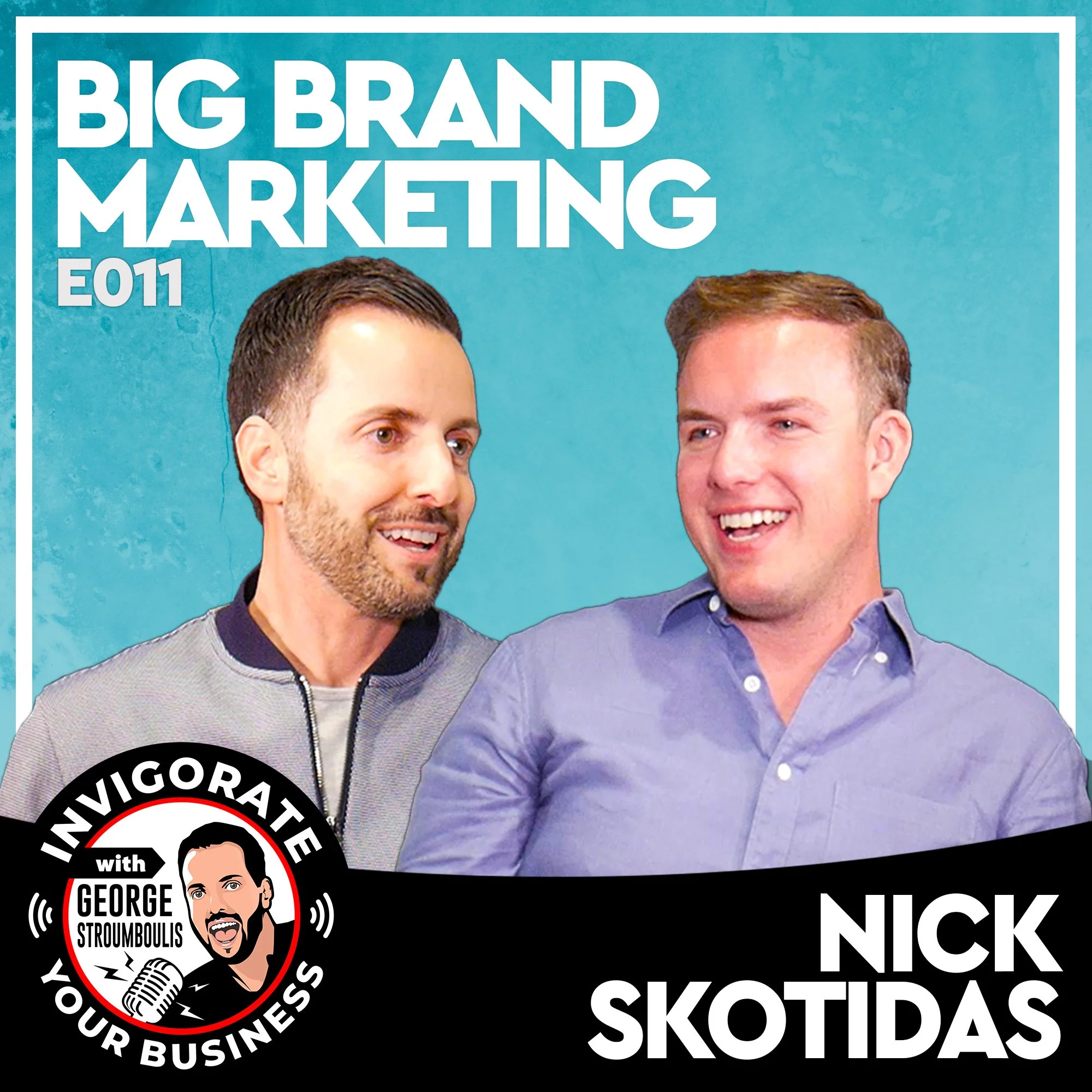
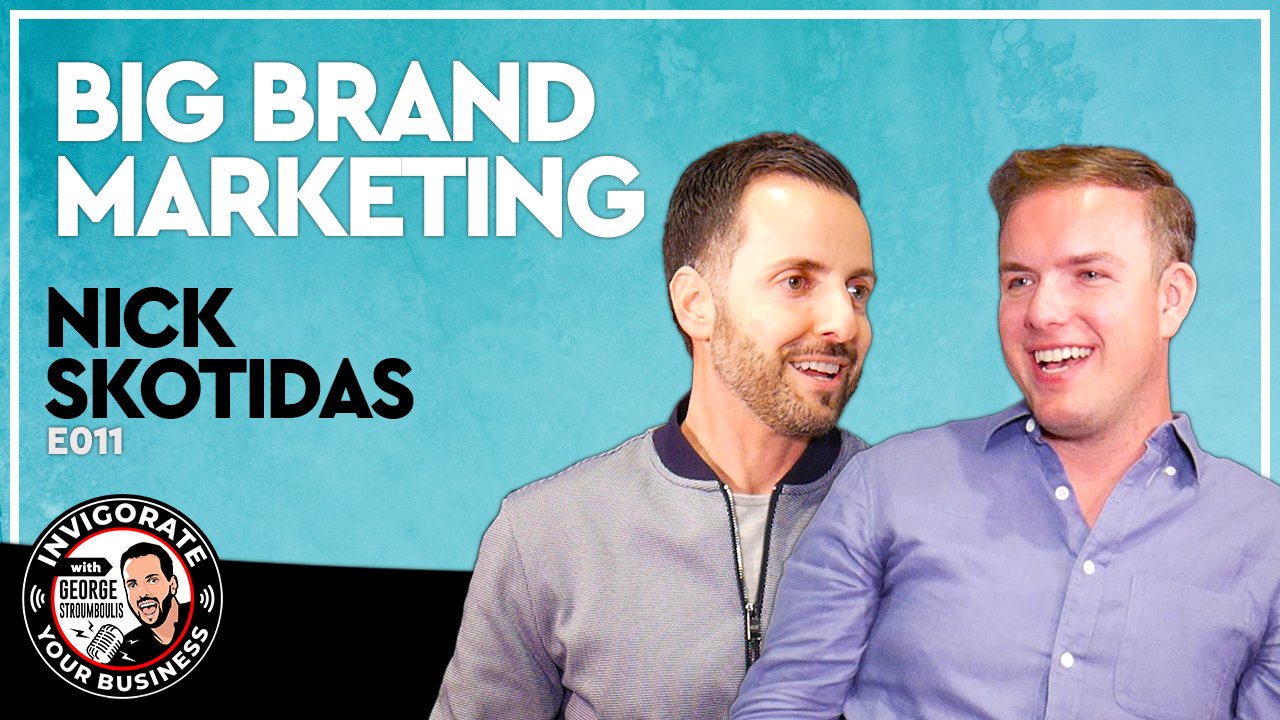
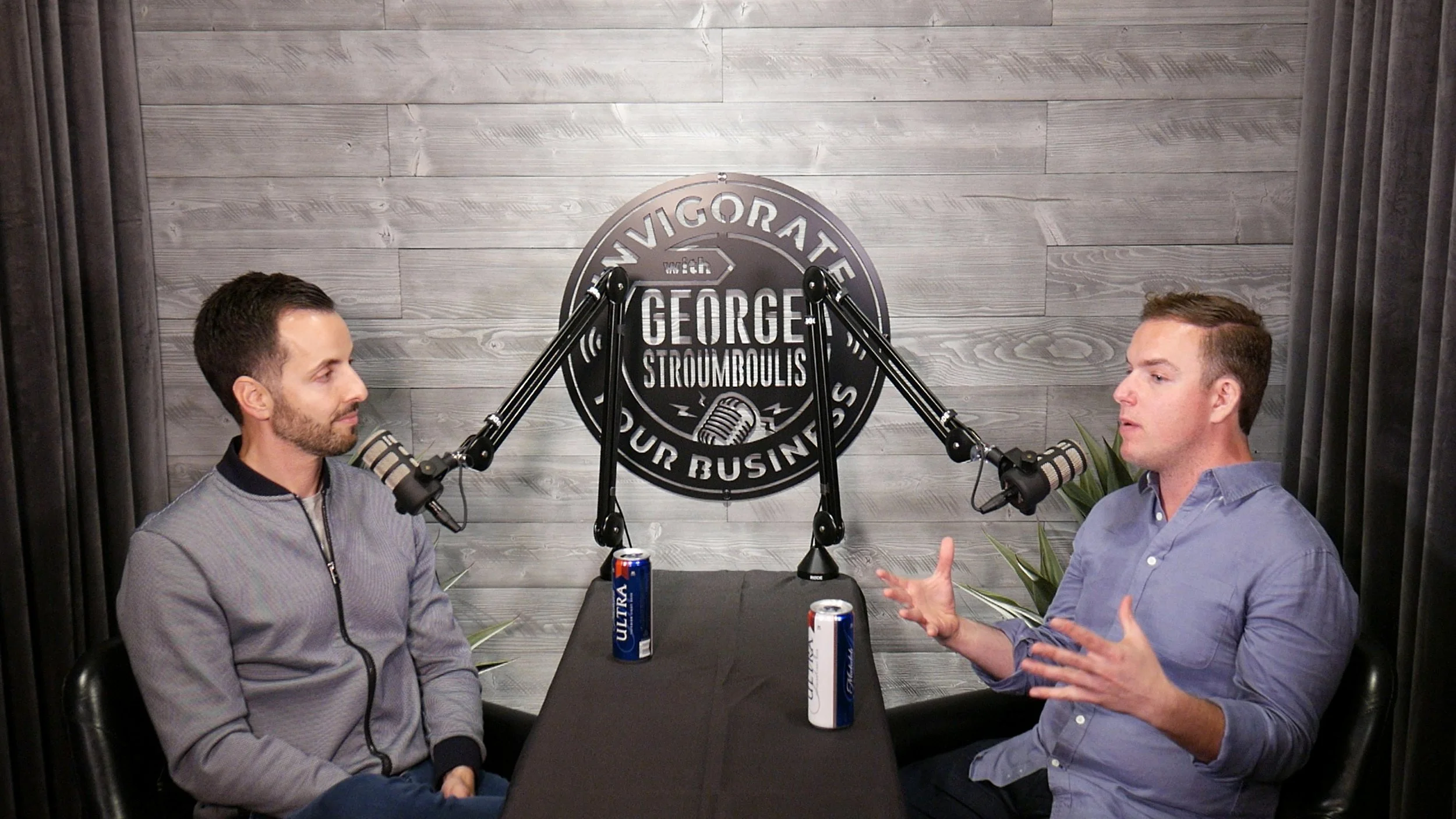
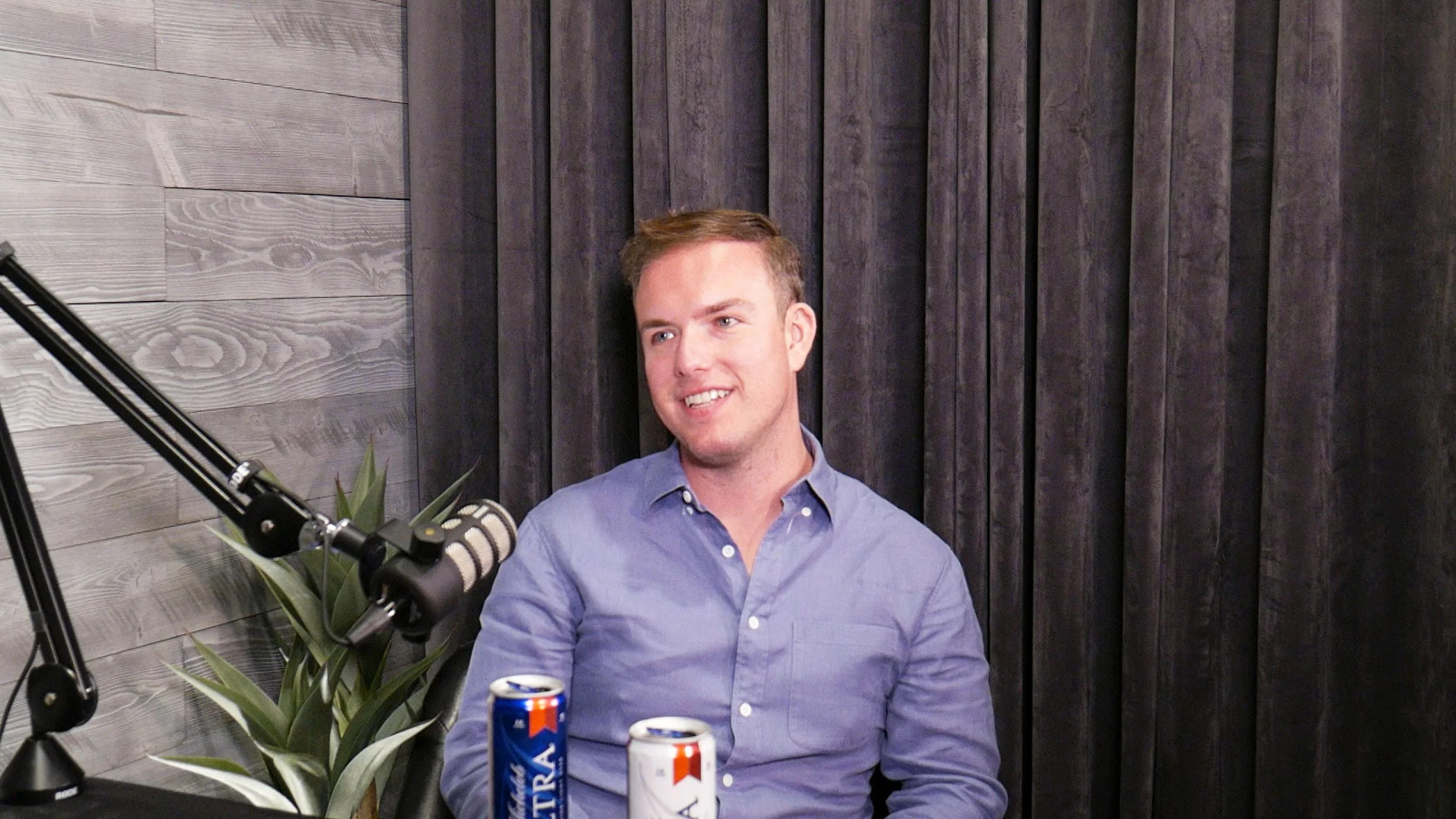
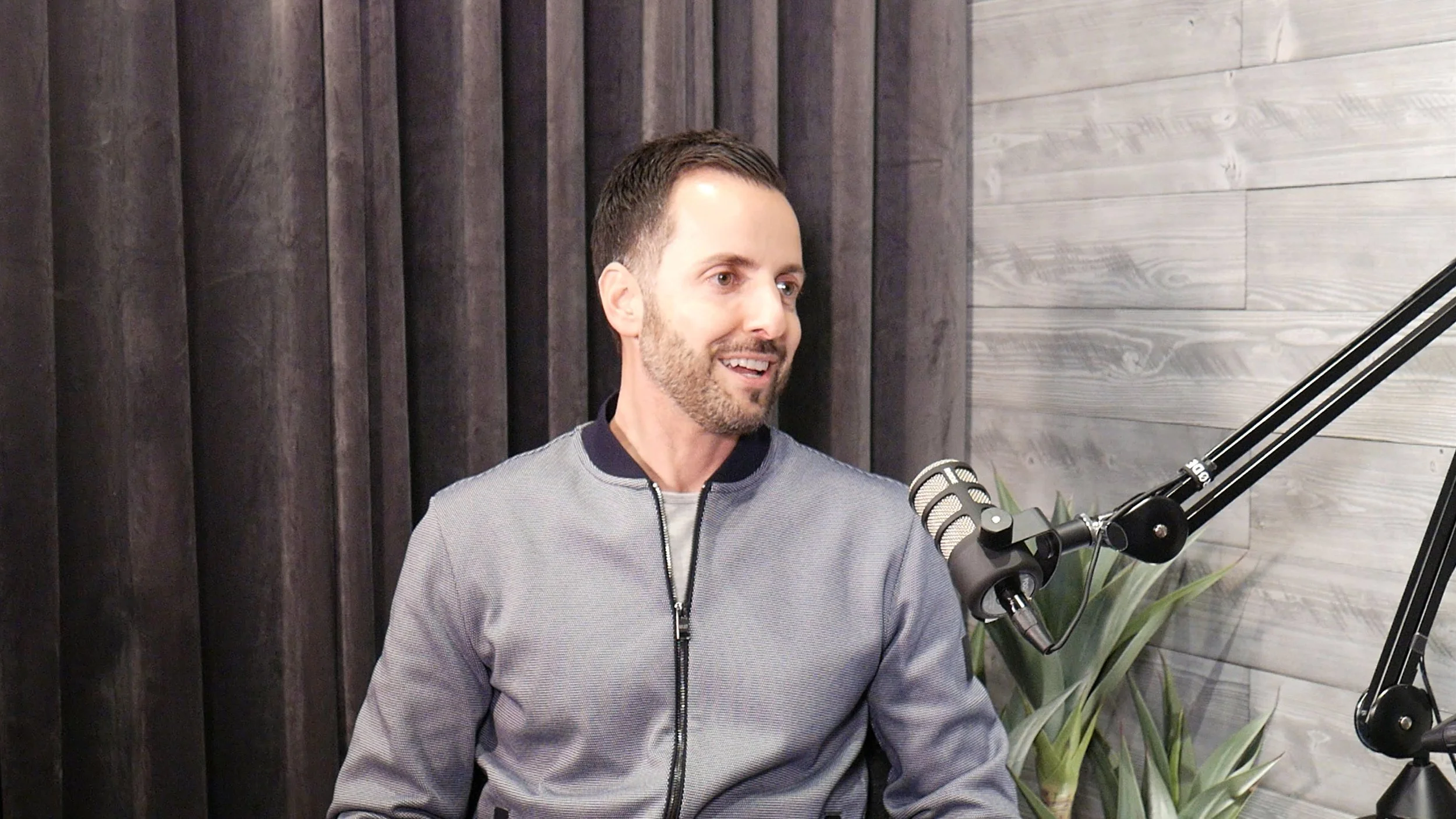
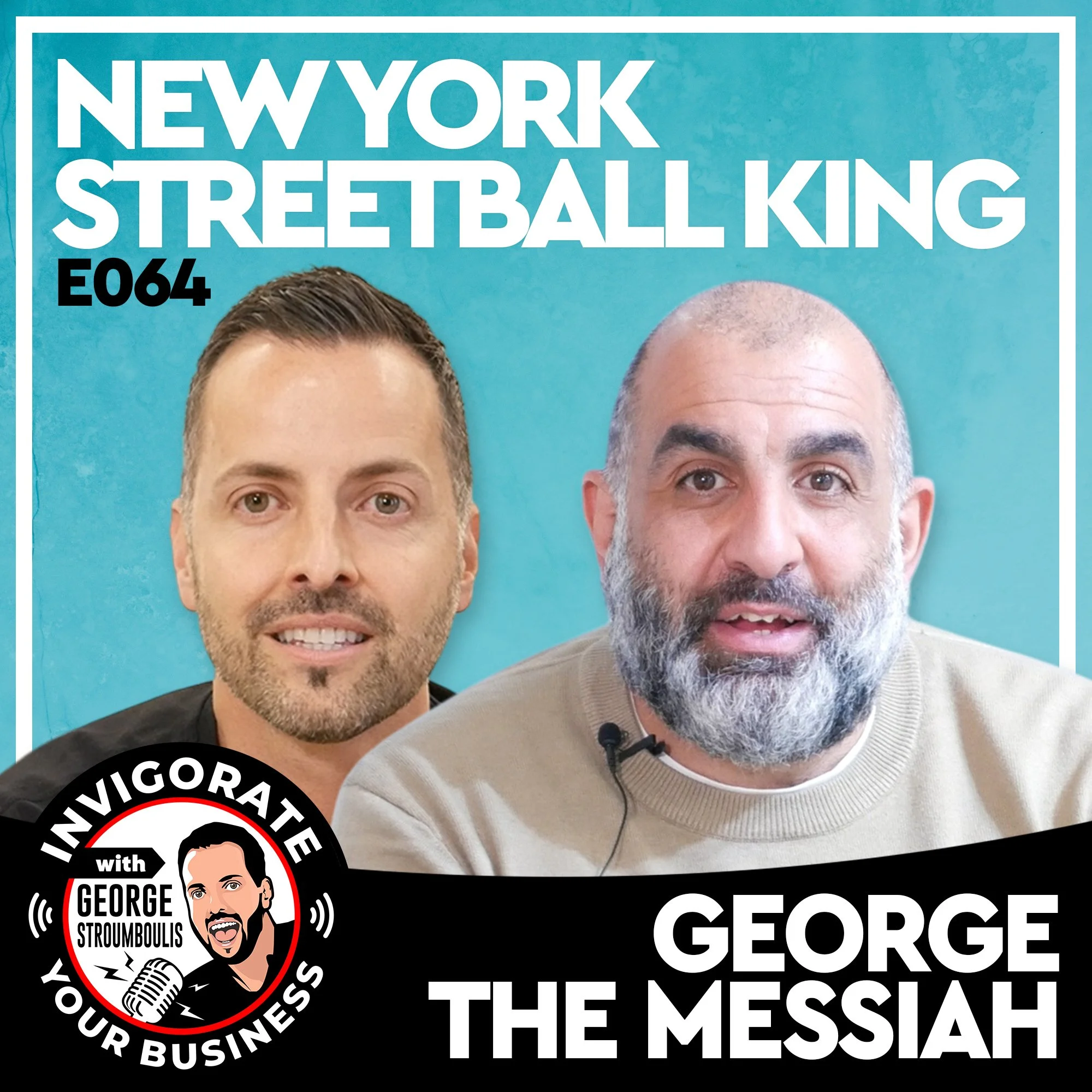
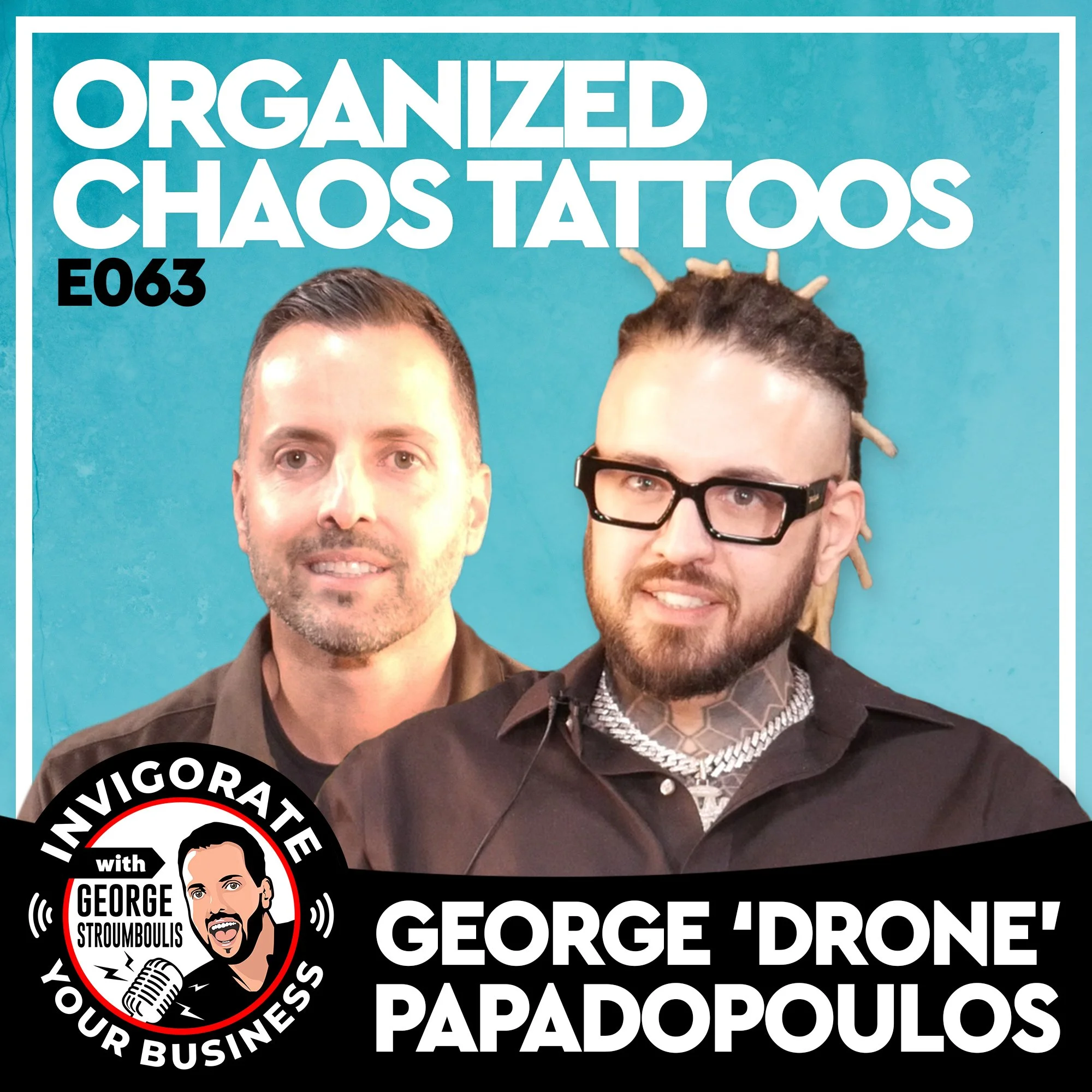

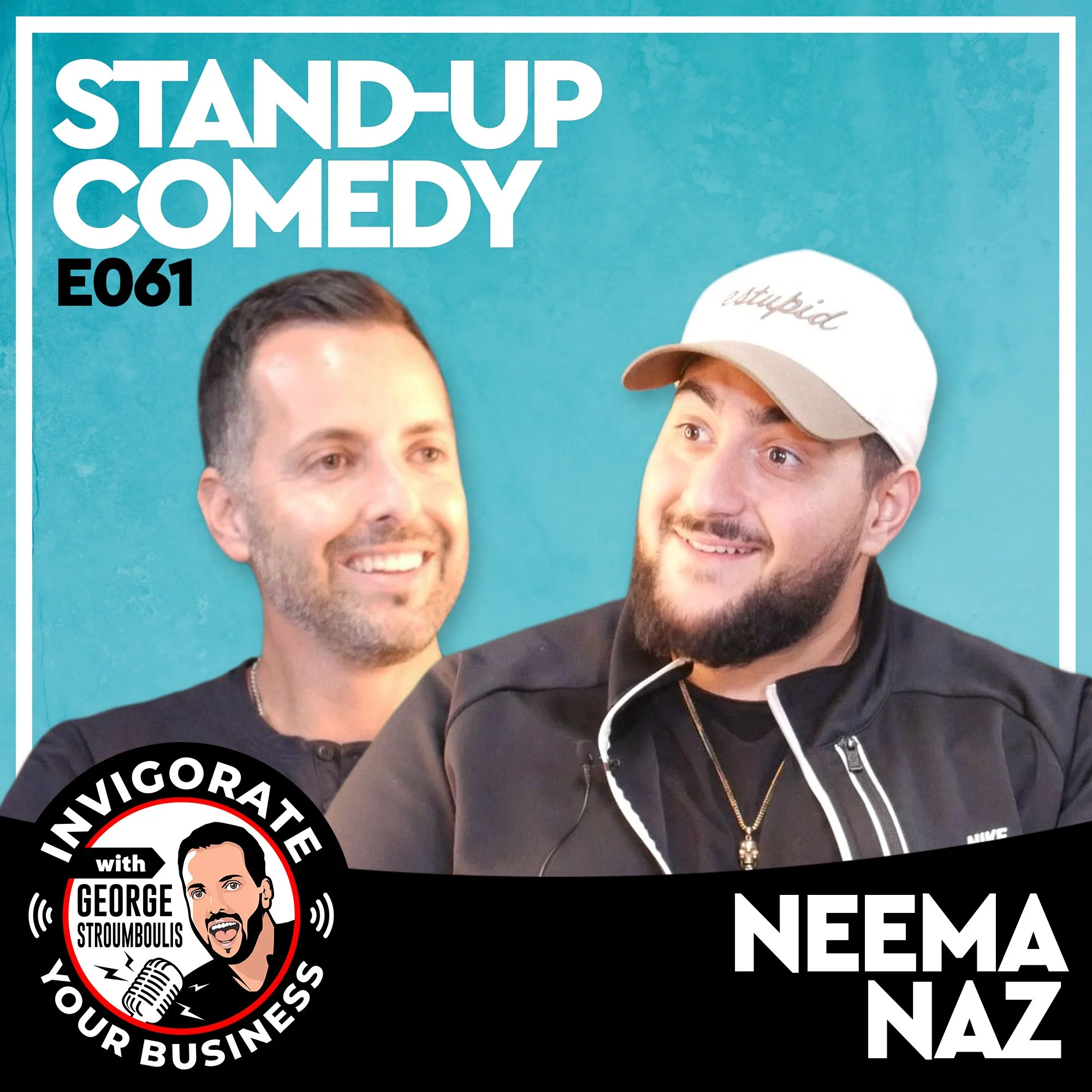
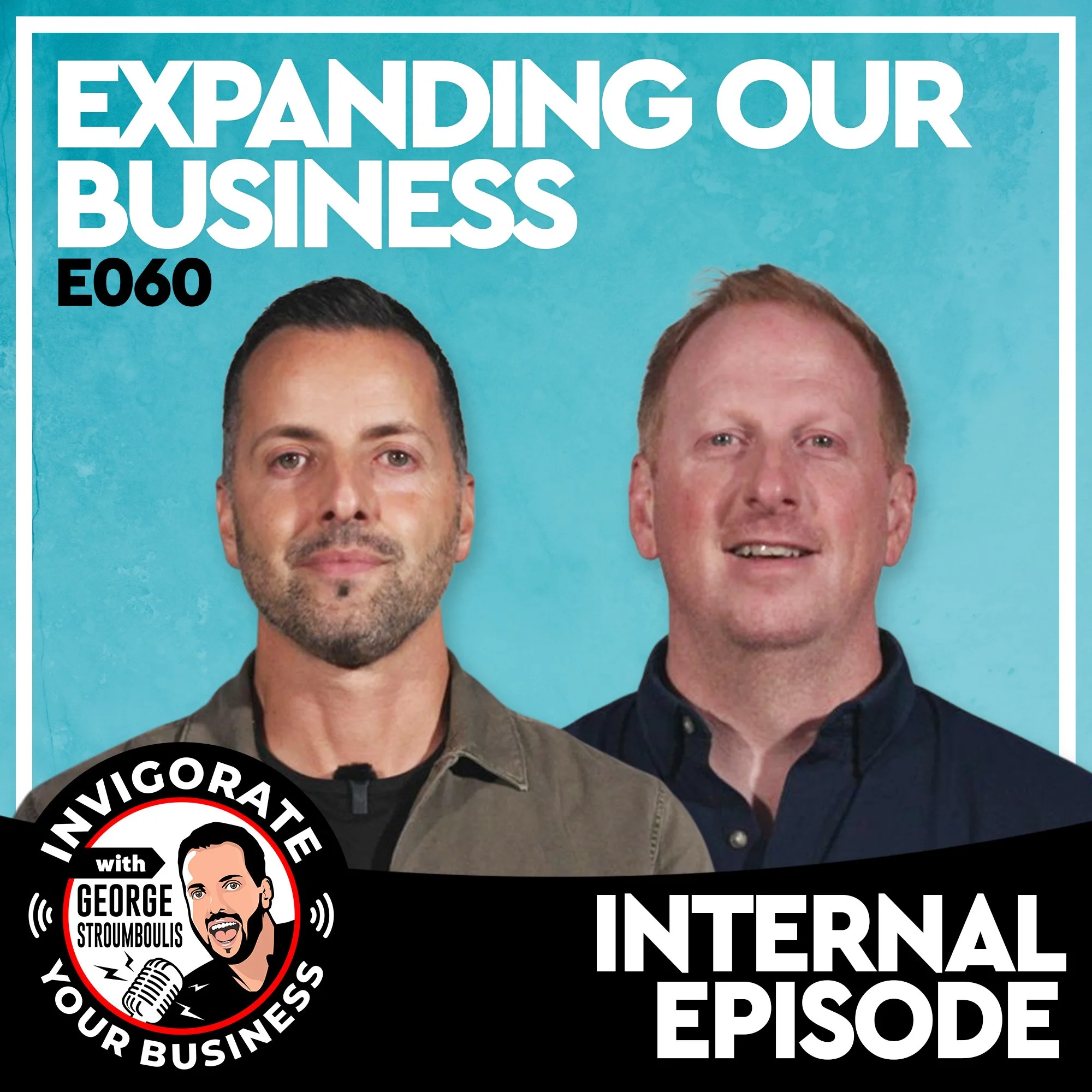
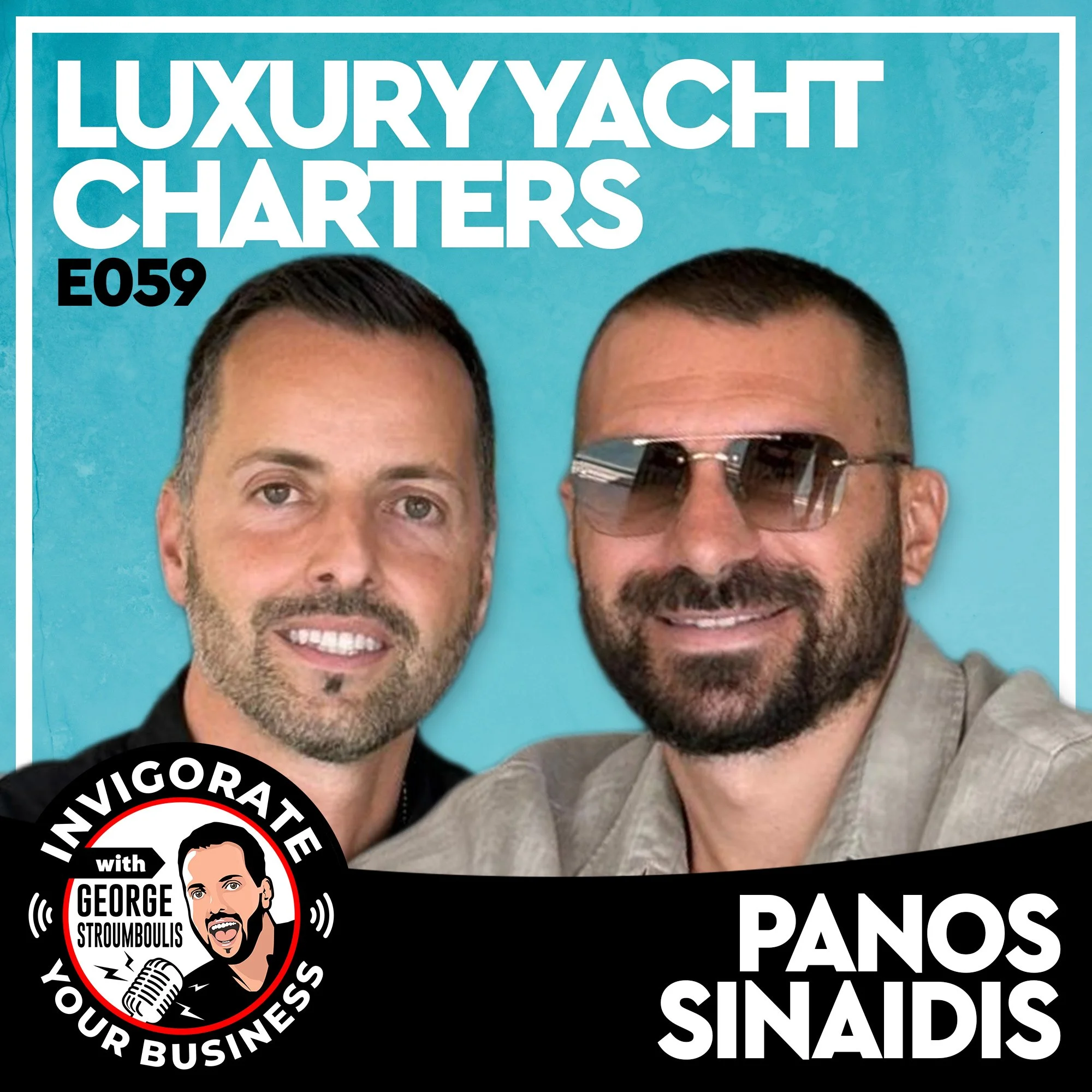
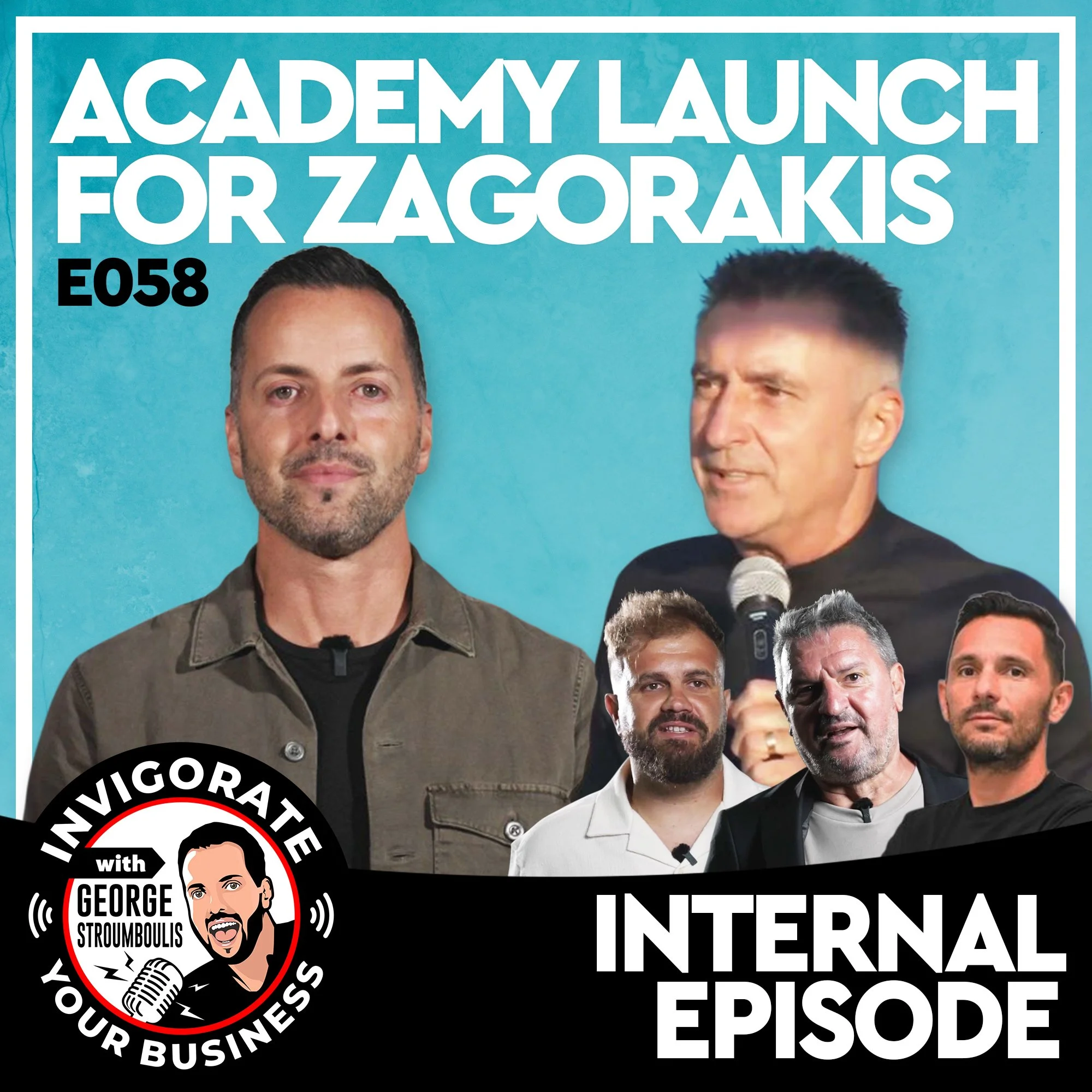
George Stroumboulis sits down in Toronto with Anthony Sorella — co-founder of The Neighbourhood Agency and co-host of the Money Buys Happiness podcast. They dive into his early career, how he and his partner built a no-BS media machine, why they launched MBH during the pandemic and how raw, unfiltered storytelling turned into billions of views